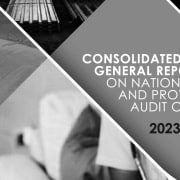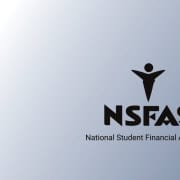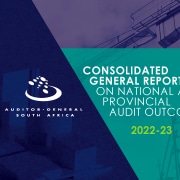|
Getting your Trinity Audio player ready...
|
By Thato Mahlangu
Solidarity Helping Hand’s Study Fund Centre (SFC) is taking the National Student Financial Aid Scheme (NSFAS) to court after allegations that the scheme erroneously paid billions to a student resurfaced this week.
In 2018, the Sowetan reported that a Walter Sisulu University student was accused of wrongfully pocketing more than R800 000 of NSFAS money in 2017, after R14-million was accidentally deposited in her student account. Originally the student should have received R1 400 for meals, but because of a system error she found herself richer by 10 thousand times that amount.
The organisation said it wants to know how billions of rand were incorrectly paid to several university students who are beneficiaries of the scheme.
Its head Stefan Pieterse said it had information about the R7.5-billion in irregular expenses that were incurred by the financial aid scheme in the last financial year (excluding the recent allegations of the R5-billion which is alleged to have been paid to a student’s account).
A screenshot on the SMS notification which shows that money was deposited, appearing to be from NSFAS with a reference, was circulating on social media this week.
But NSFAS administrator Dr Randall Carolissen denied that that amount of money was paid to a student. He added that they are aware of an allegation which caused a stir on social media recently.
“This allegation is not true, and we can confirm that NSFAS did not make any payment amounting to R5-billion to any student,” according to Carolissen.
Last year, Carolissen told Cape Talk radio host Refilwe Moloto that incorrect payments to students had increased by more than 300% between 2017 and this year.
NSFAS is currently under administration after allegations of fraud (committed by three employees) and the leaking of sensitive and confidential information, and human resources-related issues surfaced.
More funds disbursed erroneously
Pieterse said in a statement NSFAS was wasting taxpayers’ money which could be sued to assist financially deserving students.
“If officials spent the amount of R7.5-billion correctly, an estimated 150 000 students could have been assisted with R50 000 tuition fees in 2020.”
Pieterse said the organisation has filed an application in terms of the Promotion of Access to Information Act to demand answers on the following issues:
- Clarity on a screenshot of an SMS notification (dated 08 February 2020) according to which a student allegedly received R5-billion (with NSFAS as reference). The scheme, meanwhile, denied that it paid this money to a student;
- A progress report of a 2017 incident where NSFAS wrongly transferred R14-million to the account of a student at Walter Sisulu University;
- A detailed account of how NSFAS spent the R7.5 billion in irregular expenditure it incurred in 2018/2019.
“It is time for our state officials to be personally accountable for their actions and for the perpetrators to be penalised. Money can’t just disappear,” Pieterse said.
Carolissen wrote on NSFAS’s annual report that to understand the challenges that had gripped the financial aid scheme he and the team had to perform intensive forensic investigations which he described as necessary.
“It placed a huge burden on the administrator and his team and caused organisational distress. Further uncertainty is inevitable as accountability is established.”
Auditor-General findings
According to Carolissen’s Update to the Portfolio Committee on Higher Education and Training which was released in 2018, NSFAS received a qualified audit from the Auditor-General during that financial year.
“The internal Audit has also identified set of issues documented in the NOCLAR (Non-Compliance with Laws and Regulations) report. NSFAS has developed a comprehensive plan to mitigate both the Audit finding and to implement NOCLAR recommendations – detailed plan attached,” read the update.
The Auditor-General’s investigation revealed that overly large amounts paid to contractors resulted in material non-compliance (or breaches of contract) with the NSFAS Act and the National Credit Act, which were then classified as irregular expenditure.
The 2018 annual report states that NSFAS was working on re-issuing contracts with the correct funding amount, including the verification of the extent of over-disbursements, taking into account the 2018/19 payments.
He said deficiencies were identified in governance and internal controls over the disbursement of funds to students and institutions. “The deficiencies were the result of actions not taken by the previous Board and/or previous Executive Management. A service provider has been appointed to perform a forensic investigation on disbursements to determine whether any fraud took place. The investigation has just commenced.”








